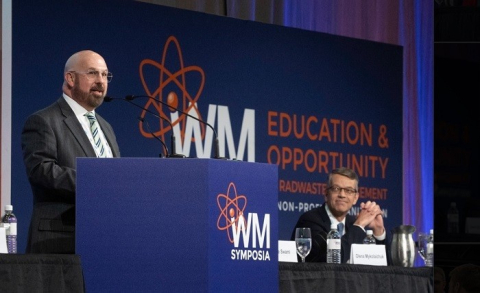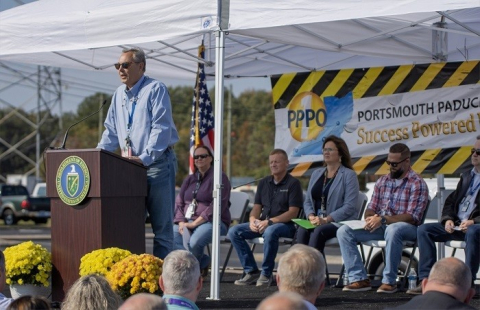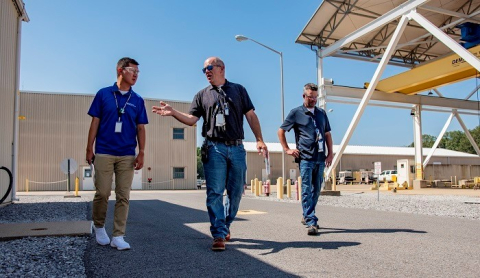
Four contractors with the U.S. Department of Energy Office of Environmental Management’s Portsmouth Paducah Project Office (PPPO) recently reached significant safety milestones, collectively achieving nearly 18 million safe work hours.
Recent upgrades have significantly improved operational efficiency, safety and environmental sustainability for the Depleted Uranium Hexafluoride (DUF6) Conversion Project at the U.S. Department of Energy Office of Environmental Management (EM) Portsmouth, Ohio, and Paducah, Kentucky, sites.

With the successful cleanup underway at the Oak Ridge Reservation serving as a “North Star,” the U.S. Department of Energy (DOE) Office of Environmental Management (EM) is entering into a “unique moment” to redefine how it conducts its mission to contribute to broader DOE goals, EM Senior Advisor Roger Jarrell said here last week.

The U.S. Department of Energy (DOE) Office of Environmental Management (EM) has the potential to play an important role in the “nuclear renaissance” underway in the United States, senior EM leaders said here last week.
Cleanup progress at the former Portsmouth and Paducah uranium enrichment plants is helping enable new opportunities for local communities to continue advancing U.S. energy and U.S. security goals, Joel Bradburne, manager of the Portsmouth Paducah Project Office (PPPO), said here last week.
If I had to characterize our status at PPPO right now, I would say it is transformative.

The Portsmouth Paducah Project Office (PPPO) achieved significant priorities, goals and milestones in 2024, advancing cleanup and preparing its two sites for future use.

Portsmouth Paducah Project Office (PPPO) Manager Joel Bradburne speaks to members of the PPPO workforce gathered at the Paducah Site for the “Success Powered by Safety” celebration.

The U.S. Department of Energy Office of Environmental Management’s plants that convert depleted uranium hexafluoride (DUF6) to more stable compounds recently returned to full operations at both the Portsmouth and Paducah sites’ first-of-a-kind facilities.

David Lu, completed his summer internship at the U.S. Department of Energy Office of Environmental Management (EM) headquarters in Washington, D.C. in August. Later that month, he toured the EM Depleted Uranium Hexafluoride (DUF6) Conversion Plant at the Paducah Site near his hometown of Murray, Kentucky.

